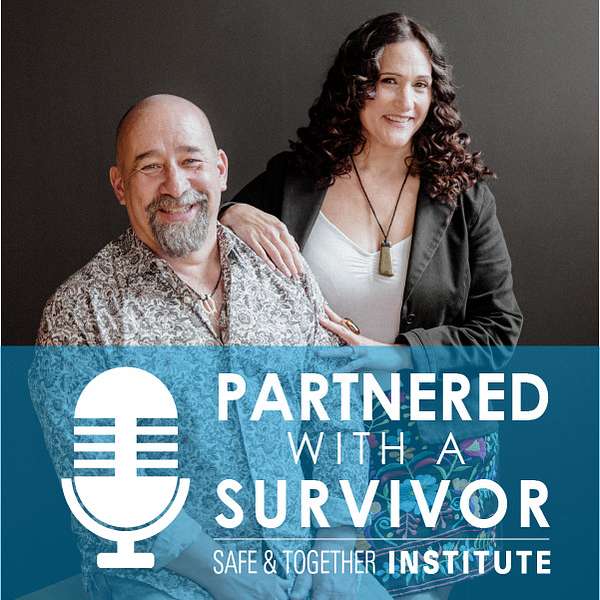
Partnered with a Survivor: David Mandel and Ruth Reymundo Mandel
This podcast is a series of conversations.
What started as a series of intimate conversations between Ruth and David that ranged from personal to professional experiences around violence, relationships, abuse, and system and professional responses which harm, not help, has now become a global conversation about systems and culture change. In many episodes, David and Ruth are joined by a global leader in different areas like child safety, men and masculinity, and, of course, partnering with survivors. Each episode is a deep dive into complex topics like how systems fail domestic abuse survivors and their children, societal views of masculinity and violence, and how intersectionalities such as cultural beliefs, religious beliefs, and unique vulnerabilities impact how we respond to abuse and violence. These far-ranging discussions offer an insider look into how we navigate the world together as professionals, as parents, and as partners. During these podcasts, David and Ruth challenge the notions which keep all of us from moving forward collectively as systems, as cultures, and as families into safety, nurturance, and healing.
We hope you join us.
Have an idea for a podcast? Tell about it here: https://share.hsforms.com/1l329DGB1TH6AFndCFfB7aA3a1w1
Partnered with a Survivor: David Mandel and Ruth Reymundo Mandel
Season 5 Episode 2: Women’s Use of Force in Intimate Relationships: An Interview with Lisa Young Larance
Both men and women can be violent and controlling. In this episode of Partnered with a Survivor, Ruth and David speak with international expert Lisa Young Larance about her research and clinical practice related to women’s use of force in intimate relationships. In the conversation, Lisa highlights the importance of context and intersectionalities in any analysis of women’s use of force in intimate relationships.
In recounting her work, Lisa shares about:
- The importance of a behavioral and life span lens when understanding the use of force in intimate relationships
- How practitioners need to remain curious about the specifics of situations related to use of force
- How to explore the relationship between trauma histories and the use of force
- The importance of seeing beyond the “victim/offender” binary
- What the work with women who use force in intimate relationships can teach us about the work with men who use force against their partners
Check out Lisa Young Larance’s work
Keep an eye out for her forthcoming book: Larance, L. Y. (Forthcoming, 2024). Broken: Women’s stories of intimate and institutional harm and repair. University of California Press.
You may also be interested in these related episodes of Partnered with A Survivor
Season 2 Episode 6: The Male Victim
Season 3 Episode 6: 7 Myths about the Safe & Together Model
Now available! Mapping the Perpetrator’s Pattern: A Practitioner’s Tool for Improving Assessment, Intervention, and Outcomes The web-based Perpetrator Pattern Mapping Tool is a virtual practice tool for improving assessment, intervention, and outcomes through a perpetrator pattern-based approach. The tool allows practitioners to apply the Model’s critical concepts and principles to their current case load in real
Check out David Mandel's new book "Stop Blaming Mothers and Ignoring Fathers: How to transform the way we keep children safe from domestic violence."
Visit the Safe & Together Institute website
Start taking Safe & Together Institute courses
Check out Safe & Together Institute upcoming events